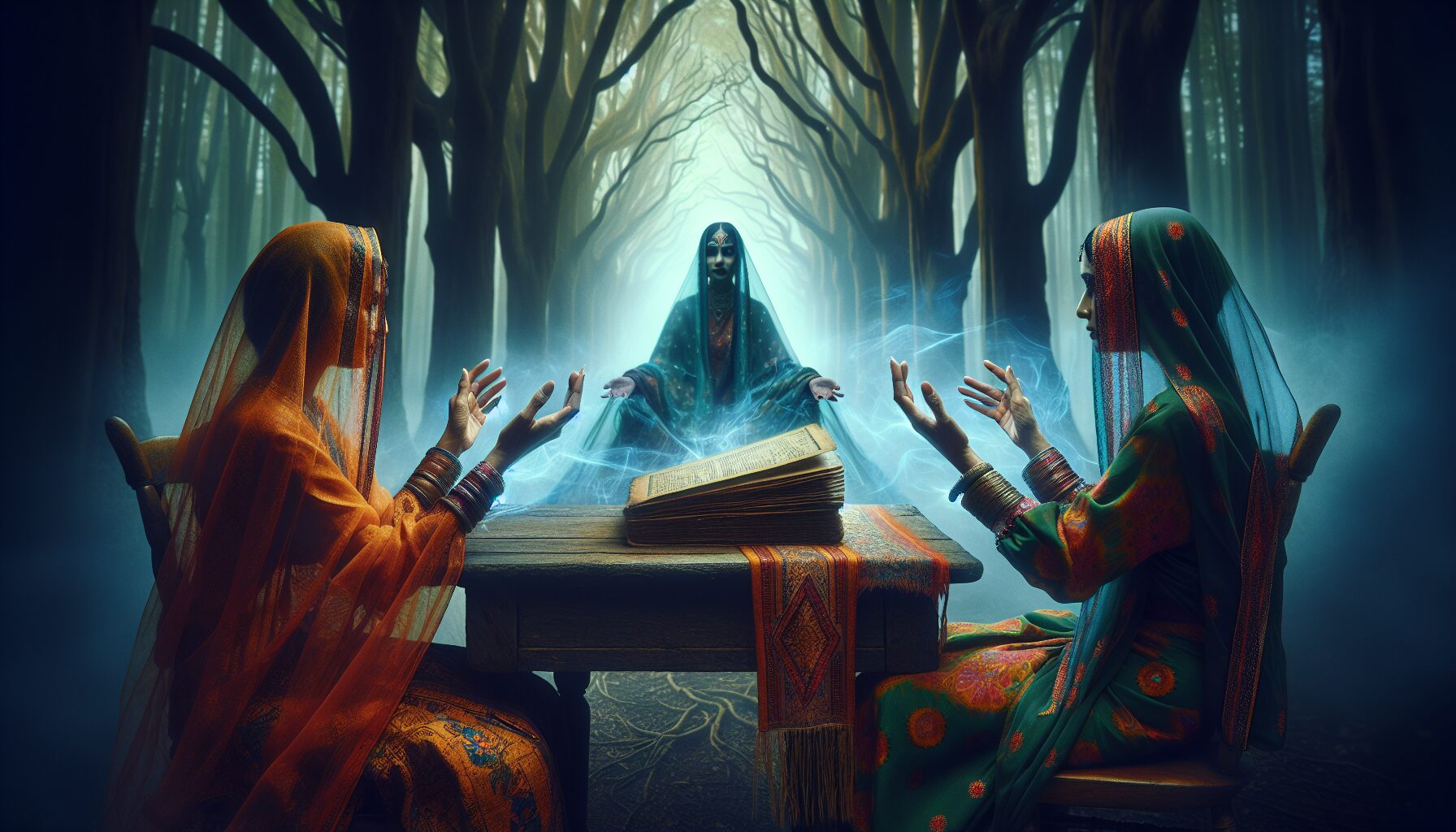For centuries, cultures around the world have curated rituals and practices to communicate with those who have passed beyond the veil of life. Today, these traditions have found new interpretations and adaptations, with modern practitioners developing distinct methods that evoke the whispers of the past. In this article, we delve into the stories and philosophies of diverse spiritualists and mediums who bridge the temporal gap, offering insights into the enigmatic experience of communicating with spirits.
The Rise of Modern Mediumship
Contemporary mediumship can be traced back to the mid-19th century and the spiritualist movement in the United States and Europe. Notably, the Fox Sisters, Leah, Margaretta, and Catherine, sparked public interest in 1848 with claims of communicating with a peddler’s spirit in their home. As historian Ann Braude notes in her book Radical Spirits: Spiritualism and Women’s Rights in Nineteenth-Century America, “the reliance on spirit messages as a source of authority was especially appealing in a climate of social reform and women’s suffrage.”
Voices from the Other Side: Practitioners Share Their Stories
Alice Hartman: The Empathic Medium
“The first time I realized I could hear them clearly, I was 12 years old. The voice wasn’t outside of me; it was a message inside my heart.”
Alice Hartman, a self-described empathic medium from Portland, Oregon, believes her relationship with the spirit world was an innate gift. Her practice is grounded not only in hearing, but deeply feeling the emotions and experiences of those long gone. She explains that her sessions are often emotionally charged, serving as cathartic experiences for both her and her clients.
- Hartman stresses the ethical responsibilities of her practice, emphasizing the need for consent and emotional readiness from those seeking to connect with their loved ones.
- She believes in the healing power of closure, stating, “For many, unresolved issues carry over into this life, affecting relationships and mental health.”
Dr. Marcus Khan: The Scientific Skeptic
“While the existence of spirits remains a matter of personal belief, dismissing these experiences as mere fabrications undermines genuine psychological phenomena worth studying.”
With a Ph.D. in psychology, Dr. Marcus Khan approaches spiritual encounters with scientific skepticism. He conducts controlled studies into how perceptions of the supernatural might manifest from cognitive functions and social conditioning. Based in Toronto, Khan offers a contrasting yet complementary perspective to outright spiritual approaches.
- Cognitive Mapping: Khan explores how our brain creates memories associated with deceased individuals, resulting in perceived spiritual interactions.
- He acknowledges the potential for beneficence in these experiences, as individuals often report decreased anxiety and increased peace following a perceived encounter.
Lorelei de Souza: The Ritualist
The profound and often elaborate ceremonies of Lorelei de Souza, rooted in Afro-Brazilian traditions, transform her practice into a sensory revelation. Based in Salvador, Bahia, Brazil, de Souza leads Candomblé sessions where music, dance, and chanting evoke the spirits known as orixás. Traditions in Candomblé are tightly interwoven with ancestral worship and the belief that spirits guide and protect the living.
- De Souza explains, “The energy of our ancestors is embedded in every movement and every beat of the drum. It is a living, resonating history.”
- These communal gatherings serve as a medium for spiritual and cultural continuity amongst Afro-descendant communities.
Methods and Meditations: Connecting to the Spirit World
Despite their diverse backgrounds, these practitioners share common techniques in their spiritual toolbox:
- Meditation: A universal practice used to strengthen the connection between the physical and spiritual realms.
- Rituals and Symbols: Physical and symbolic objects such as candles, crystals, and altars help focus intent and energy.
- Sound and Music: Instruments or vocalizations that elevate consciousness to a state more receptive to spiritual influences.
Skepticism and Belief: An Ongoing Conversation
The line between belief and skepticism remains as thin as a mystic’s whisper. As reported by Psychology Today, research indicates that belief in the supernatural can foster resilience, particularly following a traumatic loss. Still, mental health professionals caution that reliance on spiritual beliefs should not supplant treatment for grief or trauma.
Whether viewed as psychological phenomena or genuine spiritual communication, the essence of these practices embodies the universal yearning for connection—both to our heritage and to those who have crossed the great divide.
Conclusion: Weaving Threads Between Worlds
The stories and insights of these practitioners invite us to reevaluate our understanding of death and the potential for life beyond it. As the rituals unfold and voices—either real or imagined—of the past whisper across time, they beckon us to listen closely. In doing so, we may find within these echoes a resonance of love, history, and eternity.
Whether you partake in these practices or view them through the lens of skepticism, one truth remains: the human connection to those who came before us is undeniably profound, and its exploration continues to captivate and inspire across cultures and generations.

Comments